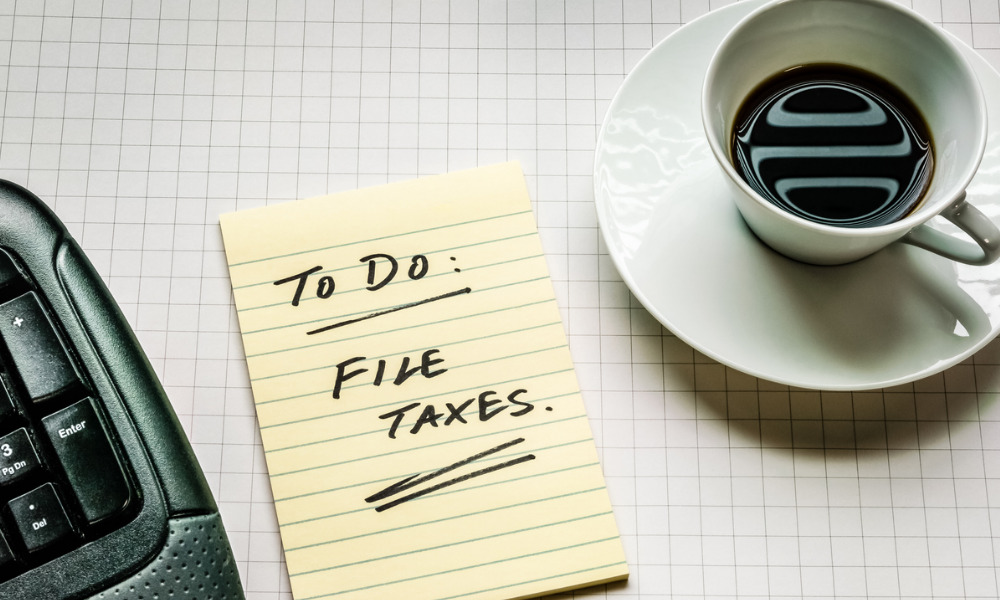The federal government and the Canada Revenue Agency (CRA) have yet to make promised changes to tax filing

Tax preparation can be a time-consuming and unpleasant task. But even though the federal government promised to simplify the process and deploy automatic tax filings a year and a half ago, Canadians are still waiting for a more convenient system that would expand access to all.
In September 2020, the federal government announced that it will “work to provide free, automatic tax filing for uncomplicated returns to guarantee citizens obtain the benefits they need.” Still, the federal government and Canada's Revenue Agency (CRA) have yet to modify the way taxes are submitted, even though some experts believe they are long overdue.
Tax expert Jamie Golombek said in an interview with CTVNews.ca, "The amount of time, effort, and money that individuals spend simply filling out papers, whether physically or electronically, or hiring a third-party expert ... seems like a lot of wasted work and time for a lot of people."
Every year, Canadians are obligated to disclose to the CRA numbers that are already published on T4s and other tax forms, which the agency already has, according to Golombek, managing director of tax and estate planning at CIBC Private Wealth.
Citizens in several OECD countries already have a tax agency reconciliation system in place, which eliminates the need for them to file their own taxes on their own. Estonia, Chile, Spain, and the Nordic countries are among the nations with a national taxation department that immediately generates a return using the existing tax forms. To record corrections or revenue from self-employment, citizens would just need to fill out a form by hand.
According to Jennifer Robson, a tax policy specialist and associate professor at Carleton University, such a system may help a lot of individuals in Canada, especially those who have difficulty completing their taxes.
A 2020 research study by Robson and Saul Schwartz, a public policy professor at Carleton University, projected that 10 to 12% of working-age persons in Canada, many of whom live in poverty, do not file taxes.
In a 2017 focus group study done by the CRA, some of the hurdles to tax filing that non-filers experience include a lack of understanding of the benefits of filing, and a lack of knowledge on how to file. Other difficulties mentioned in the survey included a lack of access to technology and a lack of competency in English or French.
As a result, people who don't want to or can't submit their taxes may miss out on CRA-managed benefits like the Canada Child Benefit or the Canada Worker Lockdown Benefit. From Robson's research, $1.7 billion in benefits went unclaimed in 2015.
The intricacy of Canada's tax system, according to some tax policy experts, makes it difficult to adopt an automatic tax-filing system in the country. According to the C.D. Howe Institute, implementing such a system in Canada would be a "difficult notion" due to the enormous number of deductions and credits available, and some other nations have done so because they have significantly simpler tax codes.
"The [Canadian] tax system is actually pretty complex. It has a lot of tax provisions," said C.D. Howe director of research Alexandre Laurin, who co-authored the paper. "[Automatic tax filing] would be a very difficult thing to do without simplifying the tax system."
Automatic filing, according to Golombek and Robson, would still be beneficial to many non-filing Canadians, notably those on social assistance.
"I think that if we had some level of automated filing for basic returns as a default for people with either certain income limitations or certain family scenarios, then I think more people would be eligible for these government benefits," Golombek said.
The duty to file taxes should be separated from government benefits, according to Laurin. "Automatic tax-filing is a very blunt solution to a much narrower problem," Laurin said. "There are other ways to get to that problem that would be more targeted."
The Canadian Revenue Agency said it is continuing to engage with partners and community organizations to provide a free and automatic tax-filing option for people who file simple returns for those who do not have a computer. The agency also looked to be aware of the tax system's complexity and the numerous tax laws that exist in Canada.



